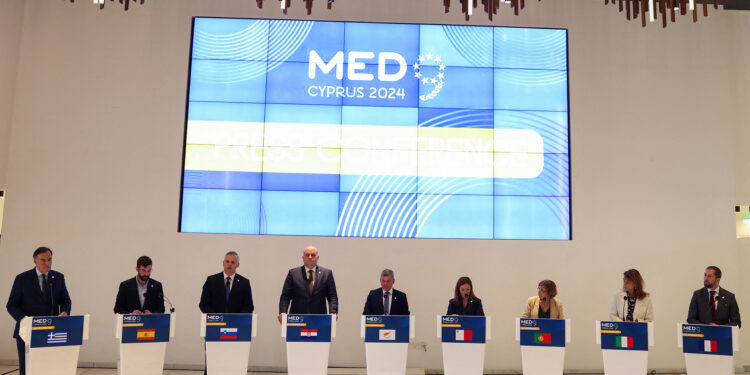Egyptian Petroleum Minister Karim Badawy said on Sunday that Egypt has reduced its target for the percentage of renewable energy in the energy mix by 2040 to 40% from 58% previously, stressing that natural gas will remain a major fuel for years to come.
Before Egypt hosted the United Nations Climate Change Conference (COP27), it pledged to raise renewable energy production to 42% of the energy mix by 2035, and later accelerated it to 2030.
In June 2024, then-Minister of Electricity Mohamed Shaker announced an ambitious plan to raise this percentage to 58% by 2040, a goal that has now been abandoned.
Badawi said, during his opening speech at the Mediterranean Basin Energy Conference 2024, “Natural gas will be relied upon as a fuel for many years to come… This is a message to all of us to work together to increase discoveries and attract more investments through the bids that are put forward for research and exploration to achieve new discoveries in “The region holds more wealth, especially natural gas.”
The continued reliance on fossil fuels comes as Egypt works to rebuild trust with foreign oil companies, whose local operations have slowed after billions of dollars in payments were delayed due to a shortage of hard currency in the country.
Since assuming his position last July, Badawy has met with representatives of many international energy companies, including Italy’s Eni, which plans to start drilling new wells in the Zohr field – the largest gas field in Egypt – in early 2025 to increase production.
Zohr field
Gas production from the Zohr field peaked at 3.2 billion cubic feet per day in 2019, enabling the country to become a net exporter. But production fell to 1.9 billion cubic feet per day by early 2024, forcing Egypt to increase gas imports through a pipeline linking it to Israel as well as liquefied natural gas shipments to avoid a months-long load shedding plan.
Egypt also imports high-sulfur fuel oil, as its imports rose to 255,000 barrels per day last September, the highest level since at least 2016.



